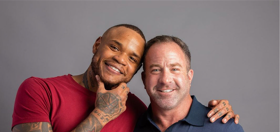 A new report by The National Coalition of Anti-Violence Programs, released today, reveals a significant increase in intimate partner violence among the lesbian, gay, bisexual, transgender, queer, and HIV-affected community.
A new report by The National Coalition of Anti-Violence Programs, released today, reveals a significant increase in intimate partner violence among the lesbian, gay, bisexual, transgender, queer, and HIV-affected community.
According to the Intimate Partner Violence in Lesbian, Gay, Bisexual, Transgender, Queer, and HIV-Affected (LGBTQH) Communities in the United States in 2011 report:
In 2011, NCAVP documented 19 intimate partner violence (IPV) homicides, the highest yearly total ever recorded by the coalition and more than three times the 6 documented homicides in 2010. Of the 19 homicide victims, a majority (63.2%) of IPV homicide victims were men, a significant shift from 2010 when 66.7% of LGBTQH homicide victims identified as women.
“This year’s report indicates that men are disproportionately victims of homicide in incidents of intimate partner violence,” said Gary Heath, Domestic Violence Program Coordinator at Ohio’s Buckeye Region Anti-Violence Organization. “NCAVP’s report shows that the societal understanding of IPV survivors needs to expand to include gay men.”
Additionally the report showed that LGBTQH people under 30 are nearly twice as likely to experience physical violence, while LGBTQH people of color under 30 are nearly 4 times as likely.
How about we take this to the next level?
Our newsletter is like a refreshing cocktail (or mocktail) of LGBTQ+ entertainment and pop culture, served up with a side of eye-candy.
The NCAVP received 22.2% fewer reports of intimate partner violence than in 2010 due to a 42.7% decrease in reports from the Los Angeles Gay & Lesbian Center, which lost a significant amount of its funding and staff. Even excluding LAGLC’s reports, however, there was still an 18.3% increase in reports of LGBTQH intimate partner violence nationwide.
The report also outlined ways to combat intimate partner violence:
- Pass an LGBTQ-inclusive Violence Against Women Act (VAWA) that protects survivors from service discrimination based on sexual orientation and gender identity, and recognizes LGBTQ communities as under-served.
- Fund LGBTQH intimate partner violence prevention initiatives, particularly for youth and young adults.
- Support LGBTQH training and technical assistance programs to increase the cultural competency of all victim service providers.
- Increase local, state, and national funding to LGBTQH-specific anti-violence programs, particularly for survivor-led initiatives.
- Increase research and documentation of LGBTQH intimate partner violence.
The full report can be downloaded here.



















jeff4justice
It’s no surprise that hurt people hurt people.
I see waaay too many profiles on dating sites/apps where guys are barking commands in thier profile – if that’s how they behave in a profile imagine how much worse they’d be in a regulations.
Sadly LGBTs stuck in rural, suburb, small town areas likely have few resources to help them escape domestic violence – some in those relationships are also in the closet adding to the fear of getting help. What’s more, many services to help are focused on woman and not welcoming to men therefore leaving gay men without help.
You’re worth being loved. Never tolerate someone abusing you.
Allison
I have not read the full report yet, but my initial thought is that domestic violence isn’t necessarily increasing, but that two things have changed: more reports of domestic violence are being made and more of these reports are being both documented and tracked.
Considering the marginalization of non-heteros around the world, it’s understandable that victims/survivors would refuse to report abuse in order to avoid anti-gay reactions from the medical and justice systems. Furthermore, at the street level, police have not always bothered to report instances of domestic violence when it doesn’t involve a male/female couple (same as in cases where a female abuses a male partner- males prefer not to report it and police don’t take it seriously).
Times are changing and we are learning more about abusers and their targets. It’s frightening to know that funding cuts are adding to the problems we already have tracking LGBT domestic violence.
Scott Johansen
Did you know stress heightens the possibility of domestic abuse by exponential amounts. Did you know most heterosexual couples who experience domestic abuse admit to having financial burdens. Let’s then examine the scrutiny, stress, and discrimination so many gay couples in our society face. Be it rejection from family, pay more taxes than their heterosexual counter parts,and even in many parts of the country…being constantly harassed by their neighbors and community for being a same sex couple. Does that in any way shape or former ever excuse domestic abuse? absolutely not. But when you read studies that speak on the rate of alcoholism, drug abuse, and domestic violence in our community- don’t ever overlook the factor of homophobia that plays a keen role in that. Our community was never given a platform to lead constructive lives because we’ve always been conditioned to believe we are inherently destructive for being gay. For many of us, we reject that notion as we grow and find happiness. For some, the pain and hurt remains. Don’t judge without walking in that exact man’s shoes I say.
JOHN 1957
There is enough hurt, violence and rejection coming from the outside, venting out on each other is not healthy. I have to agree with many post here today. It’s an array of reasons that lead to domestic violence for many couples, straight, bi, gay or other. I’ve read that there’s an increase in woman beating on their male partners and it goes highly unreported due to the embarrassment fact. We need tools to help us cope with pressure and every stress coming at us from all directions. Working out, meditation, running, exploring and finding out what works for us as a individual. Sometimes it’s best to just leave at the moment go for a walk come back and try to have civil conversation, depending on the situation. We have to decide, does it hurt more to stay or leave, sometimes it’s time to walk and sometimes it’s worth getting professional help to save the love that was there in the first place.
Love doesn’t die, it changes homes when it gets neglected.
Fitz
My dog is like that too. When he feels on-alert for threats, like he is about to get attacked or stepped on, he becomes very aggressive. But it’s not fair to call him an aggressive dog. He is an abused dog. (not by me, obviously).. People who are attacked don’t have a lot of options. Become aggressive, or become a doormat.